Advice on Coming Off Antidepressants
Deciding to stop taking antidepressants is a significant step and should always be done with care and under medical supervision. Stopping medication too quickly or without guidance can lead to withdrawal symptoms, a return of depression or anxiety, and other challenges. Here are some important things to consider:
Consult Your Doctor
Before making any changes, speak to your GP or prescribing doctor. They can guide you on the safest way to reduce your dose gradually and monitor your progress.
Go Slowly
Stopping antidepressants suddenly can cause withdrawal symptoms such as dizziness, headaches, mood swings, flu-like feelings and can even bring on suicidal thoughts. A gradual reduction over weeks or months, as advised by your doctor, helps your body adjust.
Be Aware of Withdrawal Symptoms
Some people experience “discontinuation syndrome,” which can include:
-
Nausea, dizziness, or fatigue
-
Anxiety or mood swings
-
Sleep disturbances
-
“Brain zaps” (strange electrical shock-like sensations in the head)
If symptoms become severe, consult your doctor—they may adjust your tapering plan.
Monitor Your Mental Health
It’s important to check in with yourself regularly. Keep a mood diary to track changes in how you feel. If you notice signs of depression or anxiety returning, seek support early.
Look After Your Wellbeing
Coming off antidepressants can be physically and emotionally challenging. Taking care of yourself is key:
-
Eat well: A balanced diet supports brain health.
-
Stay active: Exercise can help regulate mood.
-
Get enough rest: Sleep is essential for mental stability.
-
Practice mindfulness or relaxation techniques: Breathing exercises and meditation can help manage stress.
Have a Support System
Let close friends, family, or a therapist know about your decision. Having someone to talk to can be reassuring if you face challenges.
Be Prepared to Pause or Re-evaluate
If you find that symptoms of depression or anxiety are returning and affecting your daily life, don’t feel discouraged. It may be necessary to adjust your approach or even resume medication if needed—mental health is an ongoing journey, and there is no shame in seeking help.
Seek Professional Support
If you’re struggling, talking therapies or counselling can provide coping strategies for managing your mental health without medication.
Coming off antidepressants is a personal decision and should be made with careful planning. There’s no rush—prioritise your well-being, and remember that support is available every step of the way.
If you’re feeling overwhelmed or struggling, don’t hesitate to reach out for help. Your GP should always be your first call but UK-based mental health charities such as Mind (mind.org.uk) and Samaritans (116 123, samaritans.org) can also provide support and guidance.

